Nothing To Declare
Bab Sebta
Randa Maroufi offers a look through the cracks of a social issue that usually remains underexposed. Her radical formalistic choices might simplify the problem for the greater good, yet never lose sight of the individual tragedies.
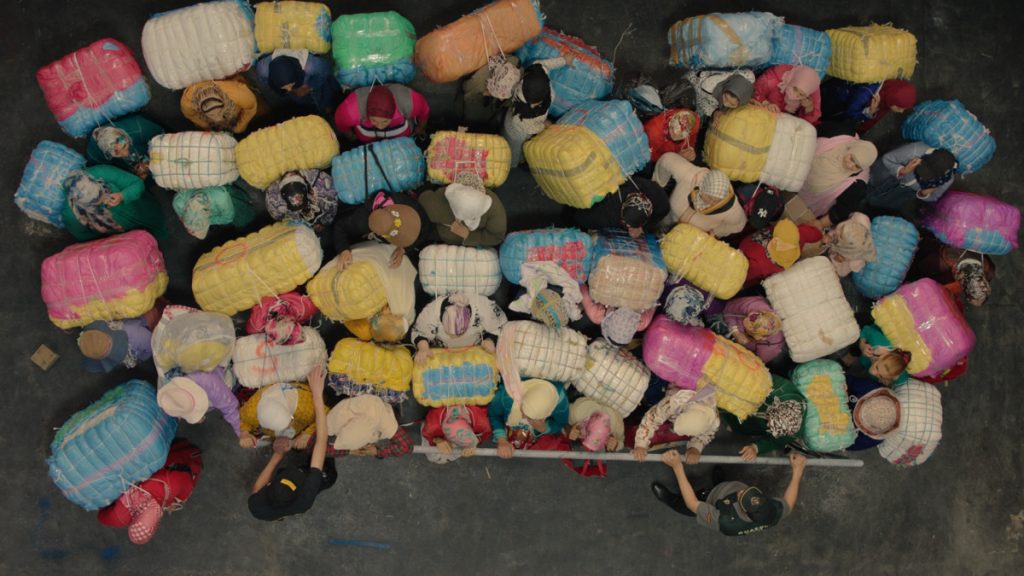
In her fourth short film, Randa Maroufi recreates the border control in Ceuta, an enclave between Morocco and Spain. Since only a few job opportunities are available in the region and informal trade is tolerated, numerous (mostly female) smugglers are forced into daily Sisyphean labour, earning some money if they’re lucky, yet never enough to free themselves from the severe living conditions.
Maroufi stages a theatrical replica in one gigantic warehouse and cleverly captures the daily life of said border life. We find ourselves—camera and thus spectator—literally hanging over the top of the heads of those waiting at the border, many of whom are killing time by working out, fixing their car, playing board games, or taking a nap. Some of the actors are smugglers in real life, too; their lives are on pause for control in more than just one sense. This almost frozen time is echoed in Luca Coassin’s cinematography: though the camera is constantly travelling at a patient pace, changing perspectives occasionally, it generates a hushed impression that skilfully embodies the slow rhythm of those on screen. Maroufi and Coassin have found harmony in the represented perspectives, offering the well-balanced experimental film and performance an air of elegance and grace.
The minimalism of content and structure is evenly evident in the set design, though here, Maroufi subtly opts for the absurd, fooling around with the model’s scale. A checkpoint, for instance, is presented as much more compact than it would allow the number of people anticipating a check-through, highlighting the ridiculousness of this strategic setting. In contrast, authentic and raw sound material is used to disrupt the undeniable beauty of the images. Over the course of this one-off walkabout, a customs officer’s testimony can be heard, providing an insight into the overall structure of the area. This predominantly cold testament does not equate to a sterile look at the facts by Maroufi, who puts her utter trust in the hands of the people she’s observing and portraying.
The neatness, taut lines, and silence accentuate the ostensible theatricality of the enactment, evoking Lars Von Trier’s Dogville, in which the human condition is similarly examined more closely by means of an enlarged and staged metaphor. Maroufi’s artificial mise-en-scene, however, also stresses the artificiality of the borders themselves and, thus, the twisted power struggle they inherently contain. As the “gateway to Europe”, Ceuta is a place where a harsh battle for survival reigns, as the income of many families depends on whether or not they can successfully transfer their merchandise across the border.
Bab Sebta also shines a light on the perspective of these smugglers, neatly welding fiction with reality. By highlighting both sides of the story, the Moroccan filmmaker creates a socio-political layering similar to Lola Arias’ Teatro de Guerra (2018), where soldiers from both sides of the Falklands War meet in an attempt to expose and understand each other’s suffering mutually. Maroufi’s radical formalistic choices might simplify the problem for the greater good, yet never lose sight of individual tragedies. This is where the uniqueness of Bab Sebta lies: offering a look through the cracks of a social issue that usually remains underexposed without actually going on-site. As a spectator, you always oscillate somewhere in between, though it’s hard to imagine ever being closer to this complex area than via Maroufi’s offered bird’s eye view.
This review was previously published in Dutch on Kortfilm.be.

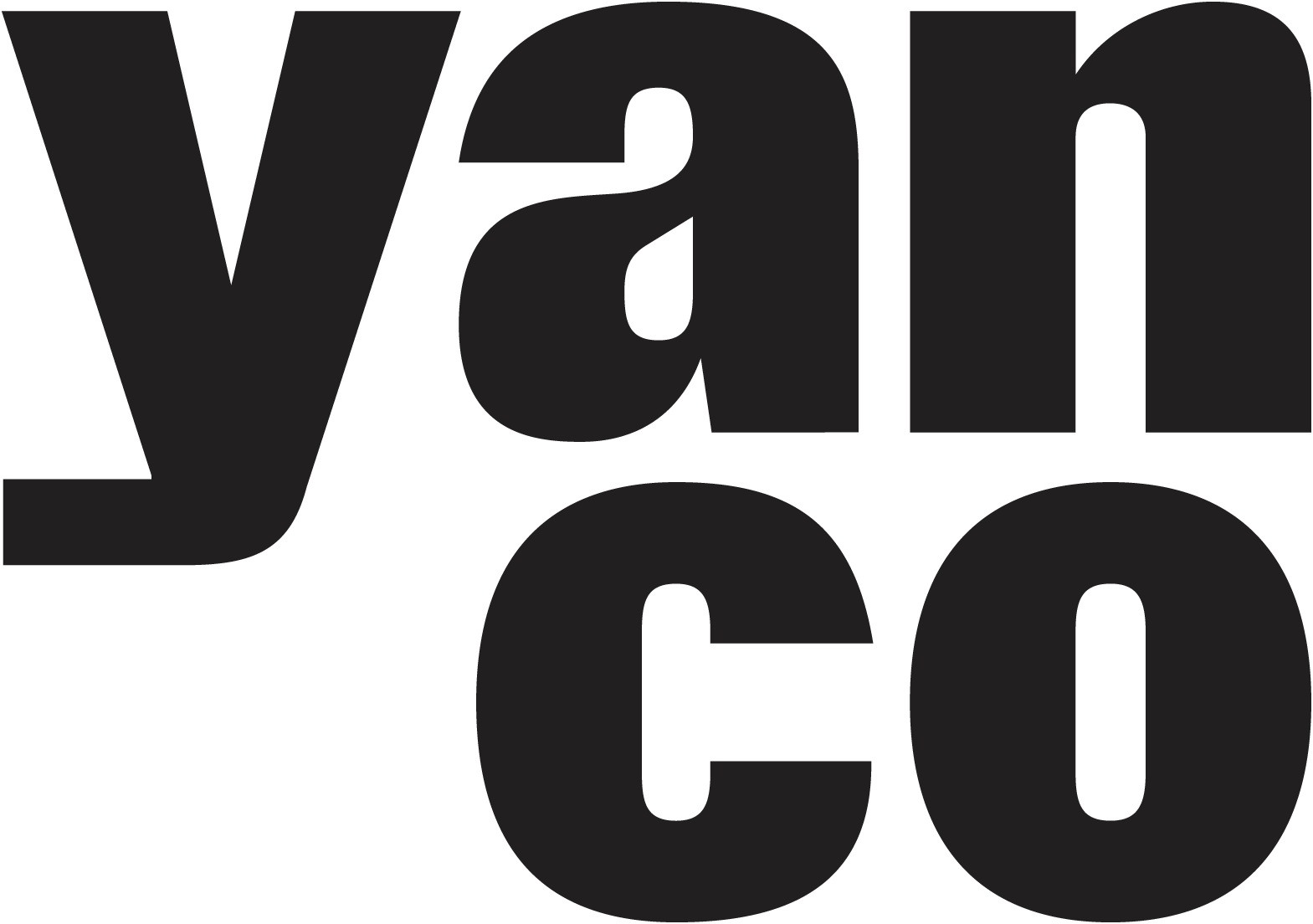
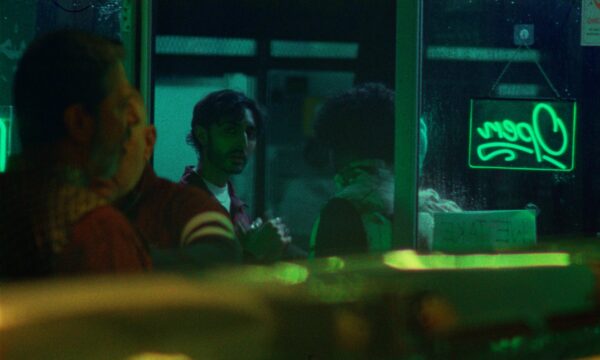
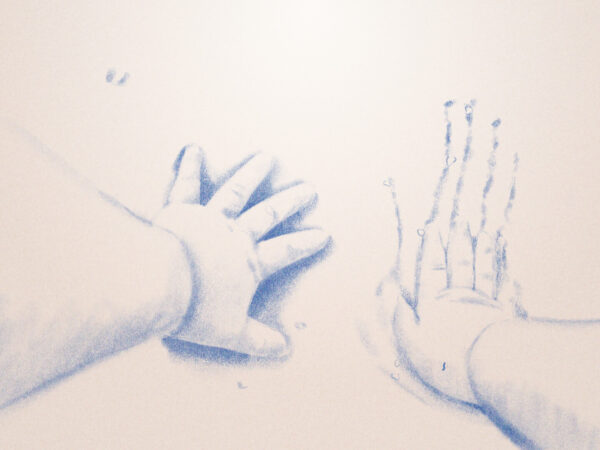
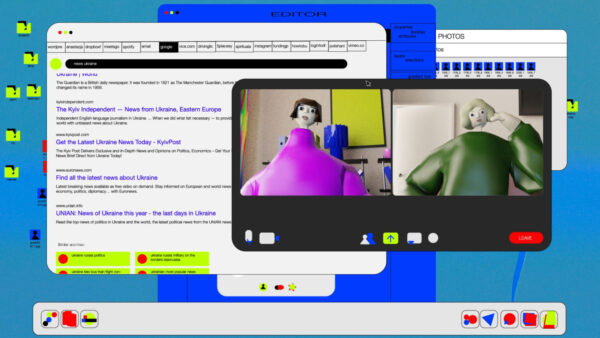

There are no comments yet, be the first!